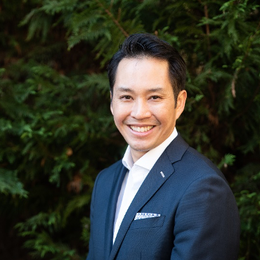Day 2
Oxford landmarks morning run
Stay active during the conference and discover some of Oxford's most iconic landmarks by joining us on an easy morning run. We will be starting the run at the Radcliffe Camera, in the very heart of Oxford.
Registration opens
In-person participants will be able to register at the reception of the Blavatnik School of Government building and enjoy tea, coffee and pastries with other in-person attendees and speakers.
Deep dive 2.1 Challenges of measurement & evaluation in outcomes-based contracts
Most programme evaluations focus on evaluating the impact of a specific intervention. Trying to evaluate a partnership model or contracting mechanism brings with it a whole new set of challenges, not least in trying to disentangle the impact of the contracting mechanism from the impact of the intervention itself. Evaluations of SOCs tend therefore to be qualitative, subjective and rely strongly on evaluator interpretation. This makes their conclusions open to critique, and it can be challenging to defend evaluation findings when stakeholders within the programmes don't agree with the findings. In this session, we will reflect on the approaches and challenges adopted in evaluating SOCs over the last decade, and ways to overcome these challenges.
Find a recording of the event here.

Professor Maren Duvendack
University of East Anglia

Dr Eleanor Carter
University of Oxford
Chair
Presentations
The prevention of child abuse and neglect is an urgent and complex social problem. The NSPCC initiative Together for Childhood (TfC) responds to this challenge through a placed-based approach. This …

Dr Thea Shahrokh
NSPCC
Most programme evaluations focus on evaluating the impact of a specific intervention. Trying to evaluate a contracting mechanism brings with it a whole new set of challenges, not least in …

James Ronicle
Ecorys
Despite the increasing popularity of Public-Private Partnerships (PPPs) in education, there remains a lack of consensus on what they actually entail, and whether such arrangements represent a viable alternative to …

Kenechukwu Nwagbo
University of Cambridge
Theories of Change (ToCs) help organizations and programmes explain how a development change occurs and what processes lead to that change. The process taken by evaluators to build a theory …

Rajeshwari Balasubramaniam
Niiti consulting

Meena Vaidyanathan
Nitti Consulting
Public-Private Partnerships (PPPs) have gained significant attention as a mechanism to drive mission-oriented policies in Italy. However, despite their potential to deliver social impact and address complex societal challenges, incorporating …

Tommaso Tropeano
Politecnico di Milano
Deep dive 2.2 Strength in depth, harnessing collaboration and local knowledge
Having strength in depth describes having many high-quality players that can be used when necessary. Strength in depth exists in many places and themes, so how can it be harnessed? The centralised, command and control style has been criticised as ineffective and prone to being siloed. Collaboration holds promise, both between those formally charged with delivering interventions, and with those in communities that have the local knowledge to coordinate efforts effectively.
This session will examine how collaboration can bring enhancement to delivering outcomes for people. It will include presentations on collaboration method, including a brief discussion of a new playbook for cross-sector collaboration. The following five in-depth presentations will examine collaboration methods across a variety of international and policy contexts, such as health service provision, social impact measurement and development financing.
The audience are encouraged to consider ahead of the session how satisfactory the state of collaboration is in their area of work and what has been limiting the harnessing of many actors.
The session will feature discussion with the audience to help solve the burning issues with working collaboratively. At the end of this conversation, we aim to help collaboration to be stronger in a range of contexts by reaching a better understanding of why it hasn’t been happening as much as it could.
Find a recording of the event here.
Presentations
The CEO’s from organisations that lead the development of place-based practice in Canada, Australia, New Zealand and the UK have co-authored a paper looking at why equity and place-based approaches …

Jo Blundell
Place Matters

Anna Powell
Collaboration for Impact, Australia
There are some areas within public services where we are consistently failing to achieve what must always be their most important goal: to improve people's lives.
These issues – including …

Mila Lukic
Bridges Outcomes Partnerships
What if it was possible to bring local organizations to the center of creating change to end extreme poverty in Sub-Saharan Africa? Organizations closest to the problems in their communities …

Celeste Brubaker
Village Enterprise
Wisdom and social outcomes – shifting attention from contract to character
Addressing the big, complex, multi-dimensional challenges of our age requires thinking and action at interconnected levels – individual, group, …

Dr Jane Gaukroger
Cultivating Wisdom Limited

Dr Sabena Y Jameel
University of Birmingham Medical School
This presentation will draw on lessons from work completed by Davis Pier (a Canadian social innovation organization), collaborators from the London School of Economics, and community organizations focused on improving …

Mike Davis
This presentation will offer a brief overview of an exciting new publication on transformative cross-sector collaboration.
The challenges facing our societies and economies today are so large and complex that …

Ian Taylor
University of Oxford
Theme: Innovations
Deep dive 2.3 Bold & bright: learning from innovative global practice in social outcomes contracts
This session will be an opportunity to learn about the impact and lessons learnt from pioneering social outcomes programmes from around the world. We will bring together a diverse group of projects from countries as diverse as Australia, South Africa, Sierra Leone, India and Japan, to explore implementation challenges, adaptations required and value of collaborative working.
Find a recording of the event here.

Jessica Reedy
University of Oxford

Abha Thorat-Shah
The British Asian Trust
Chair
Presentations
The Government Outcomes Lab’s March 2023 Impact Bond dataset indicates there have been just 19 impact bonds in the criminal justice sector. This study examines a New Zealand youth reoffending …

Carl Bakker
G-Fund Limited
Outcome-based financing instruments such as impact bonds (IBs), offer a promising solution to achieving the SDGs in an environment of setbacks on poverty alleviation, budgetary pressures and shocks. While high-income …

Anushree Parekh
British Asian Trust
Ghana Education Outcomes Programme (GEOP) and Sierra Leone Education Innovation Challenge (SLEIC) are two first-of-their-kind outcomes contract with immense potential to shape the market. Both programmes bring together a mix …

Ali Inam
Bridges Outcomes Partnerships
- Overview of the Foyer Central social impact investment and how it relates to SOC23 themes
Foyer Central is the only purpose-built Foyer* in NSW, and the first Foyer in the …

Sophie Holloway
Office of Social Impact Investment, NSW, Australia
The South African Medical Research Council (SAMRC) has launched the first outcomes-based contract (OBC) in South Africa with full outcomes funding being provided by government. The SAMRC has brought together …

Dr Nevilene Slingers
South African Medical Research Council (SAMRC)
Governments across the world have commissioned SIBs In the field of criminal justice to reduce reoffending rates. However, as reoffending is driven by a complex set of factors, it has …

Reiji Ikeda
Ministry of Justice of Japan

David Parks OBE
The Skill Mill
Big Picture: Putting the puzzle together - piecing together data and evidence in Outcomes-Based Contracting
Join us for an exploration of a rich tapestry of new and diverse data sources and tools in outcomes-based contracting. We will showcase the power of the GO Lab’s SyROCCo machine learning tool to synthesise high-level ex-post data from an extensive collection of academic and grey literature and how it links to the Impact Bond Dataset offered by INDIGO; we will delve into new outcome data visualisations from Life Chances Projects; and discover groundbreaking approaches to granular data collection at the service-user level.
Prepare for a rich discussion around how these distinct data landscapes intertwine, enabling us to ask unprecedented questions, gain project-level perspectives, redefine success assessment, and unlock transformative learning opportunities in outcomes-based contracting.
Find a recording of the event here.

Juliana Outes Velarde
University of Oxford

Dr Felix-Anselm van Lier
University of Oxford

Benoit Renard
Tiko

Dr Ailsa Cook
Matter of Focus

Tom Neill
Time to spare

Louise Savell
Social Finance
Chair
Presentations
Our work across multiple social impact bonds and outcomes contracting projects in Australia has identified a key barrier to the growth of outcomes contracting in Australia - the absence of …

Dale Renner
Latitude Network
Social impact poster gallery
We recognise that there is so much exciting and meaningful work all of our different speakers and their organisations are doing which can’t be fit into the limited speaking slots.
As such, we are excited to host a new opportunity at the Social Outcomes Conference 2023. Speakers and organisations are invited to share a poster at the conference. This poster will be on display physically in the Inamori Forum at the Blavatnik School and virtually on the SOC23 webpage. We will be displaying posters both virtually and physically so that all attendees, both online and in-person can view the posters.
Session documents:
Take a look at our virtual poster galleryDeep dive 2.4 Investing in mental health and disability: how outcomes-focused innovative financing can support and advocate for systemic change
In light of the World Mental Health Day on the 26th of September 2023, this session focuses on the timely issue of investing in mental health. Recent estimates have found the global cost of mental, neurological and substance abuse disorders to be US$8.5 trillion, which is projected to double by 2030. Despite the economic, social and personal toll, national governments spend an average of just 2% of their health budgets on mental health, which signifies a dire underinvestment. COVID-19 has only exacerbated this global mental health crisis and pushed people further into inaccessibility and disability. Nonetheless, the positive news is that several global initiatives have pathed the way for a systematic change in how we view and fund mental health.
In this panel we will examine recent evidence from academic evaluations as well as hear practical insights on how to design and evaluate mental health outcome-based contracting from Outcome Funders, the Voluntary Sector, and Not-For Profits. We hope the lessons learned from these key initiatives will unlock investment and be a part of the world-wide call-to-action to re-prioritise our mental health and wellbeing.
Find a recording of the event here.

Dr Andrea Feigl

Emily Hulse
University of Oxford
Chair
Presentations
Societies are facing a multidimensional crisis and the pressure this brings on citizen’s mental wellbeing grows and grows. The impact of poor mental health touches every aspect of our lives …

Richard Johnson
Healthy Brains Global Initiative

Dr. Lars Hartenstein

Shayla Smith
The Service Reform Fund (SRF) was a national programme of change which helped to expand, scale and sustain social innovations in the areas of disability, mental health and homelessness. Resources …

Dr. Niamh Lally

Dr. John A. Healy
Social Finance acts as the learning and evaluation partner for a £2.6m grant programme funded by the Henry Smith Charity, in partnership with Speakup (our lived experience partners). We are …

Tanyah Hameed
Social Finance
Deep dive 2.5 What is in a measurement? Insights and perspectives for measuring and monetising outcomes
Measurements are often assumed to be perfect windows into social outcomes, but are they? Join our engaging roundtable on social outcomes measurements, where we investigate this theme from multiple perspectives. In this session we will explore questions such as:
- What value in outcome-based contracting is?
- What are the main challenges in choosing the right measurements?
- How social measurements change a contract's power balance?
- How social outcome measurement could improve the generation of public value of outcomes-based contracts?
Gain unique insights from policy makers, practitioners, and researchers as they share their diverse perspectives on measuring outcomes. Delve into the purpose and applicability of outcome research, and explore the frustrations and failures encountered, shedding light on the practical realities and tensions between research design and real-world behaviour. Join us for an interactive and engaging panel session that challenges conventional wisdom and provides fresh perspectives on measuring social outcomes.
Find a recording of the event here.

Neil Stanworth
ATQ Consultants

Dr Mara Airoldi
University of Oxford

Jeffrey Matsu
CIPFA

Dr Elaine De Gruyter
University of Oxford
Chair
Presentations
In this presentation, we proposed to examine the different perspectives brought to the issue of outcome research on social welfare advice; from the policy maker (from the Welsh Government), the …

Lindsey Poole
Advice Services Alliance

Madeleine Parkinson
Sheffield Hallam University’s Students’ Union

Paul Neave
Welsh Government
This presentation discusses key insights and indicative headline figures from the evaluative Social Return on Investment (SROI) calculation of the Chances Social Outcomes Contract (SOC). Our contribution offers a multi-disciplinary …

Dr Kath Edgar
Substance

Charlie Grosset
Substance

Dr Johannes Langer
Substance
Deep dive 2.6 Enhancing the effectiveness of spending for environmental and social outcomes
Recent years have seen governments and private organisations alike pledge increased investment towards environmental goals.
This session explores the role of outcomes-based partnerships for enhancing the effectiveness of new climate spending, with a particular focus on how the pursuit of environmental goals can be aligned with social aims.
We will examine:
- Just transition and ‘pro-poor’ climate finance
- The ways existing models of contracting for social outcomes are being adapted to address environmental outcomes
- The opportunities and risks posed by private capital and/or corporate partners
- Examples and learning from practice
Find a recording of the event here.

Kieron Boyle
Impact Investing Institute
Presentations
To address the globe's climate crisis, it is critical to ensure not just more climate finance but that each dollar of climate finance is delivering the greatest results possible. It …

Ben Stephens
Instiglio
Corporate partner and pooled funding managed by Bridges Outcomes Partnerships are working in partnership with social enterprise Wecyclers to create social and environmental outcomes in Nigeria.
Through this outcomes partnership …
Sophie Emler
Bridges Outcomes Partnerships
This article explores the emergence of Environmental Impact Bonds (EIBs), a declination of the Social Impact Bond (SIB) model to tackle issues related to the ecological transition and experiment innovative …

Maya Tira
Audencia Business School

Dr Diane-Laure Arjaliès
Ivey Business School
Big Picture: Turning the oil tanker - can outcomes-based partnership really catalyse lasting change?
The potential legacy that a well-designed outcomes partnership can achieve is often articulated in terms of ‘system strengthening’ – positive impacts within a service system beyond the immediate person-level outcome targets of the programme. Most would agree that strengthening system capacity is a goal worth pursuing; but the term is broad, even vague, and can mean a number of different things. There is a need to articulate what those different aspects are, how they interrelate, and why an outcomes-based approach in particular can attend to opportunities for system change. In this session, we will investigate and seek clarity about the relationship between outcomes-based contracting and system strengthening – what it is, how we pursue it, and the evidence by which we assess it. We will connect these questions to the latest learning from practice, to better understand how system-level goals are conceived and pursued in case examples.
Find a recording of the event here.

Dr Harry Bregazzi
University of Oxford

Jonathan Ng
USAID

Abhik Sen
UN

Andreea Anastasiu
University of Oxford
Chair
Presentations
The poverty graduation model is an excellent example of how donors and governments increasingly choose an evidence-based approach to equipping households with the skills and resources to exit poverty. However, …

Caroline Bernadi
Village Enterprise
Social Finance aims to generate lasting, widespread change that improves outcomes for people and communities. Outcomes-based commissioning (OBC) is a key part of our toolkit – used to convene cross-sector …

Jessica Davies
Social Finance
In 2022 EOF, in partnership with the Governments of Sierra Leone and Ghana, launched the two largest outcomes funds in education, totalling $48m in funding. The programs aim to improve …

Miléna Castellnou
Education Outcomes Fund

Stephen Chandler
Education Outcomes Fund
Accountability at arm’s length: how should we hold public-private partnerships to account?
In this session, Professor Carolyn Heinrich will discuss the challenge of holding public-private partnerships to account with Dame Margaret Hodge.
This public talk is a timely discussion, aimed at helping reconcile collaboration and accountability in a way that can inform better practice.
About the session
The conversation will draw on Dame Margaret’s experiences during her 5 years as Chair of the Public Accounts Committee to explore the challenges of contracting out public services, as well as broader issues of public accountability and its importance to maintaining trust in government. Together with an in-person and online audience, they will consider how advances in the state of the art of public sector contracting might help or hinder accountability, and ultimately how we can ensure public-private partnerships better deliver for the citizens they serve.
Public-private partnerships are an inevitable part of 21st century public services. But if they are to maintain the trust of the citizens they serve, we need to ensure they deliver what they are supposed to, and are held to account when they do not. Recent years have seen the best and worst of collaboration between governments and partners in the private and not-for-profit sectors. Our response to COVID-19 saw public healthcare systems pull together with private companies and universities to rapidly develop and deploy a life-saving vaccination programme, aided by civil society in reaching and supporting the most marginalised and vulnerable members of society.
But it also saw great failures. The emergency acquisition of personal protective equipment (PPE – a significant amount of which was unusable) bypassed procurement procedures, leaving serious concerns about probity and value-for-money. These challenges are not new, nor are they unique to the COVID response. From buying aircraft carriers and armoured vehicles to probation services and employment support, Governments’ efforts to deliver complex goods and services have often failed (Hodge, 2016). Ultimately, these failures mean that taxpayers’ money is wasted, citizens are left underserved, and the public’s trust in government is undermined.
Increasingly, there is a recognition amongst scholars and practitioners that for the most complex public services – such as those supporting people experiencing homelessness to find stable accommodation, or people with mental health conditions into jobs – our traditional approach to public contracting often doesn’t work. We need a more flexible, collaborative approach which can facilitate joint problem solving and adaptation to meet the needs of service users and society. However, this more “relational” approach also raises questions for public accountability. If the deliverables of a contract change over time, what precisely ought we hold partnerships to account for? If responsibility is shared between the members of a partnership, who do we hold to account?
About Dame Margaret Hodge
Dame Margaret has been the Labour Member of Parliament for Barking and the heart of Dagenham since 1994. She has held several government positions in the last Labour government, holding portfolios across education, work and pensions, business and culture. In 2010 she became the first woman elected Chair of the Public Accounts Committee, serving until 2015.
Find a recording of the event here.

Professor Carolyn Heinrich
Vanderbilt University

Dame Margaret Hodge
Labour Party
SOC23 Closing celebration gala & remarks
A celebratory ending and closing remarks with moments of community, insights, and connection. Join us for drinks, nibbles, music, and reflections for this final celebration in our beautiful venue.
Enter access code
Submit the event access code to reveal the session/meeting credentials.
